CORROSION & CORROSION CONTROL IN OIL & GAS INDUSTRY
Course Description
Objectives
- Apply and gain an in-depth knowledge on corrosion monitoring and control techniques and explain the basic principles of corrosion
- Describe the methods and the equipment such as cathodic protection systems, protective coatings, chemical additives and material selection used for the prevention of corrosion
- Carryout pressure testing of pipelines and explain the reasons behind conducting pres sure tests
- Discuss the equipment for testing under pressure as well as apply the latest procedures of pressure testing
- Select, apply and verify corrosion resistant coatings for underground pipe installations
- Prepare pipeline surfaces according to standards as well as discuss the possible risks of underground corrosion-resistant coatings
Apply anti-corrosive coatings as well as inspect, test & troubleshoot corrosion resistant coatings
Who Should Attend
Inspection and corrosion engineers will appreciate the frank discussion of the competing methods available in this course. Senior engineers and managers will gain by developing their interpretive skills in data analysis. Further, this course is ideal for all engineers and technical staff whose responsibilities include the reduction of corrosion either at the design stage or during operation of the facility. Managers in particular will benefit by increasing their awareness of the
options available to them.
Training Methodology
This interactive training workshop includes the following training methodologies as a percentage of total tuition hours:-
30% Lectures
30% Workshops & Work Presentations
20% Case Studies & Practical Exercises
20% Videos, Software & General Discussions
Accreditation
Reference
Course Outline
The aim of this course is to provide sufficient information for engineers and managers to identify and apply corrosion control and materials selection procedures to overcome corrosion issues. An in-depth understanding of corrosion is not required to effectively prevent untoward corrosion in 80% of problem areas.
Upon the successful completion of this course, the participant should have a high quality and in-depth understanding of the corrosion monitoring methods available. The advantages and limitations of each method are detailed and the methods of analysis to convert raw data to useful information are included.
